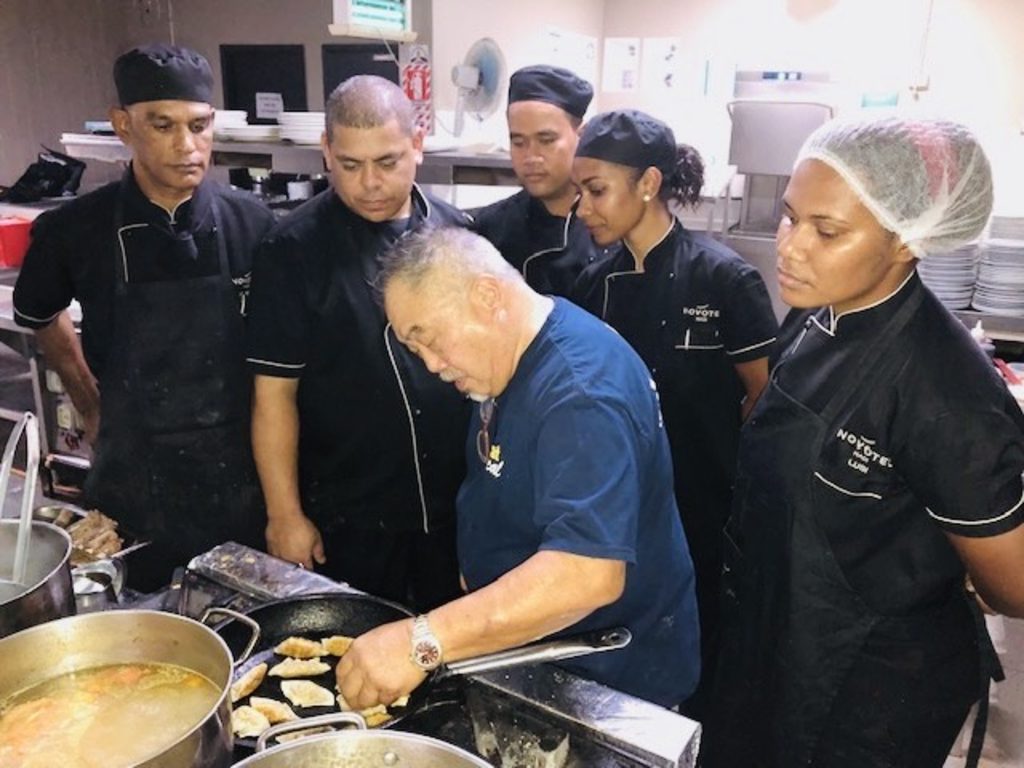EATING healthy and not being to dependent on imported food is what Colin Chung firmly believes in and he hopes it will be the way forward for Fiji.
For more than 40 years Colin has travelled throughout the Pacific, teaching people on how to use fresh locally grown produce to create mouth-watering contemporary island cuisine.
He believes eating fresh and healthy local produce can help the fight against non-communicable diseases like diabetes and help local farmers earn more – a positive direction for many Fijians.
Colin, with the assistance of his good friend, Greg Cornwall, established Pacific Islands Resort Consultants Ltd, to create awareness on the necessity of eating healthy and investing in freshly grown produce.
In doing so, Colin and Greg have a good network of people who trust their skills.
The two conduct cooking sessions, menu redesigning and culinary training workshops for those hoping to improve their culinary skills and menu plan.
Travelling around Fiji, Colin noticed how locals relied heavily on imported and processed food.
“Visiting the Yasawa, I was sad to see villagers eating tinned fish meals, two-minute noodles and long loaves.
“I told them they had an abundance of seafood right in front of their homes and asked why they were buying tinned fish?
“They have uto (breadfruit) – why are they not making uto chips and instead of buying potatoes why are they not making mashed uto which are just like potatoes.
“Uto falls and it rots on the ground in the village, it’s way more nutritious than bread and potatoes, it’s just as good as kumala (sweet potato) and it has a great nutritional profile.
“We should be growing uto for the world, and it can even be used to make flour.”
Colin, 81, said they were trying to change people’s mindset by getting them to not only eat fresh local produce but to also appreciate it.
The duo visited many resorts in Fiji, schools and have done private cooking sessions for those wanting to step out of their comfort zones and embrace a much healthier and fresher alternative.
With decades of cookery experience, Colin can whip up a savoury, affordable and nutritious meal from amaranthus (moca) and sea grapes (nama) to kaikoso (ark clam) and taro.
In 2016, the Ministry of Agriculture co-sponsored with the Ministry of Industry, Tourism and Trade a culinary teaching workshop with Colin to train young Yasawa chefs how to cook local fresh sea and land produce in new ways – this catapulted the initiative and allowed Colin to share his wealth of knowledge with local food enthusiasts.
Colin in his book Kana Vinaka highlighted that although Fiji had many interesting and traditional local dishes, they were sometimes not cooked or presented in ways that endeared them to visitors.
He wrote that hoteliers and chefs needed to see the inherent value in developing an exciting locally inspired cuisine that appealed to overseas guests and Fijians alike.
Kana Vinaka is based on Fijian contemporary island cuisine. It was awarded the Gourmand World Cookbook Awards in the Best South Pacific Food Culture Category.
Last month, Colin and Greg did a two-hour cooking demo for a group of 10 friends at the Novotel Hotel conference kitchen in Lami.
They created a three-course luncheon made from local produce sold at the Suva Municipal Market.
The objective of the cooking session was to get expatriates who work in Fiji to not only learn about the local produce that are available to them but to also experience the local market.
Colin said many who came to work in Fiji were not quite familiar with what was offered locally, so it was important for them to visit the market and see what was in season.
The menu created during the cooking session at Novotel was made from locally selected ingredients, that were affordable and always in season.
“We bought kaikoso. Instead of imported seafood why not try out the local seafood like kaikoso.
“We did simple menus so it’s easy for them to make and most of it is in our cook book.
“The whole session was a way to introduce people to how the market system works, how they can select the best produce and for them to know how cheap local produce are compared to packaged products imported from overseas.”
He said the cooking session was organised by the Novotel Hotel Suva Lami Bay’s general manager, Mareile Jerosch-Hoehn. The hotel’s chefs assisted Colin.
Those that attended the cooking session were treated to a hearty luncheon – simply indulging in the taste of contemporary Fiji island cuisine made from fresh produce.
The three-course luncheon consisted of mini moca and kaikoso fritters, ota (edible fiddlehead ferns) octopus and bu (young coconut) noodle salad, tiny rotis with vegetarian chilli made from jackfruit, lime and coriander aioli.
For dessert, Colin made a coconut curd crumble.
Colin said it was possible to create high quality, contemporary menus in Fiji made from 75 to 80 per cent local ingredients, adding that people could make a difference if they supported locals for exciting, tasty and healthy eating experiences.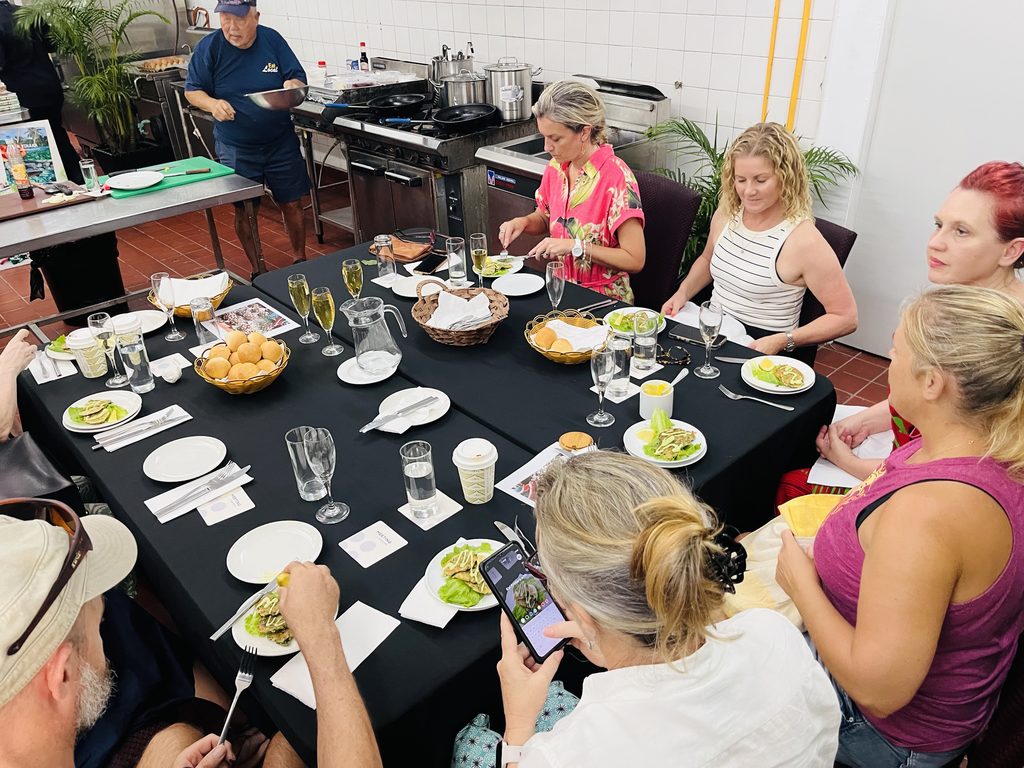
The session was organised by the Novotel Hotel Suva Lami Bay’s general manager, Mareile Jerosch-Hoehn.
Picture: ANA MADIGIBULI
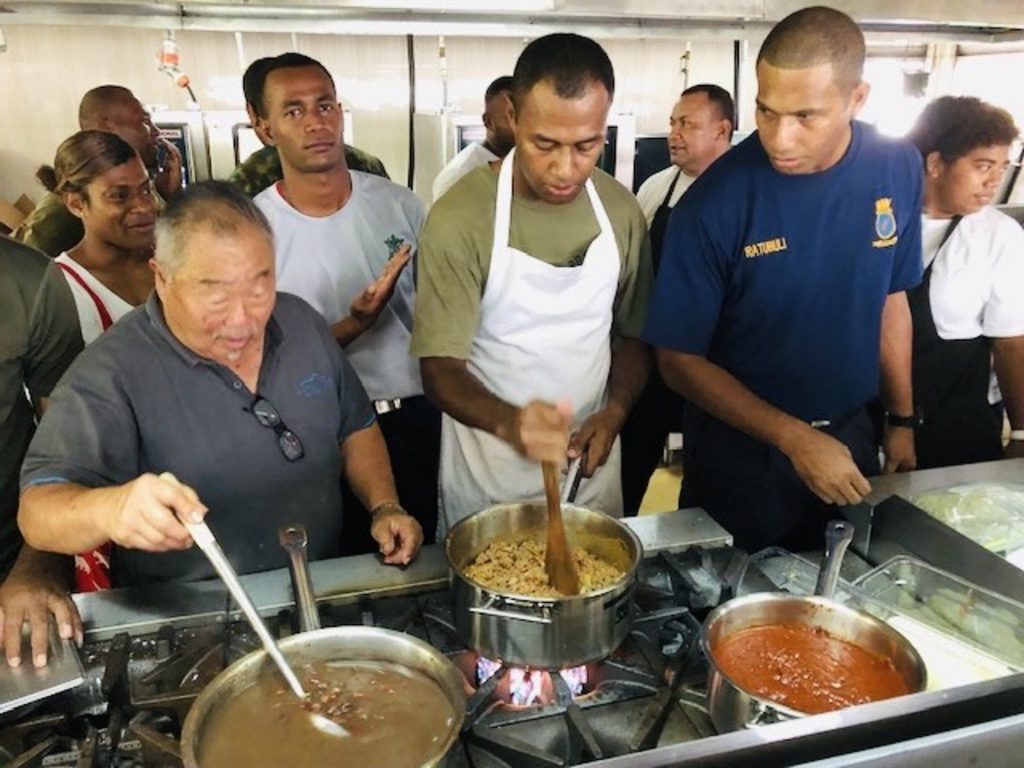
Colin Chung with army cooks during their training at the army mess. Picture: GREG CORNWALL
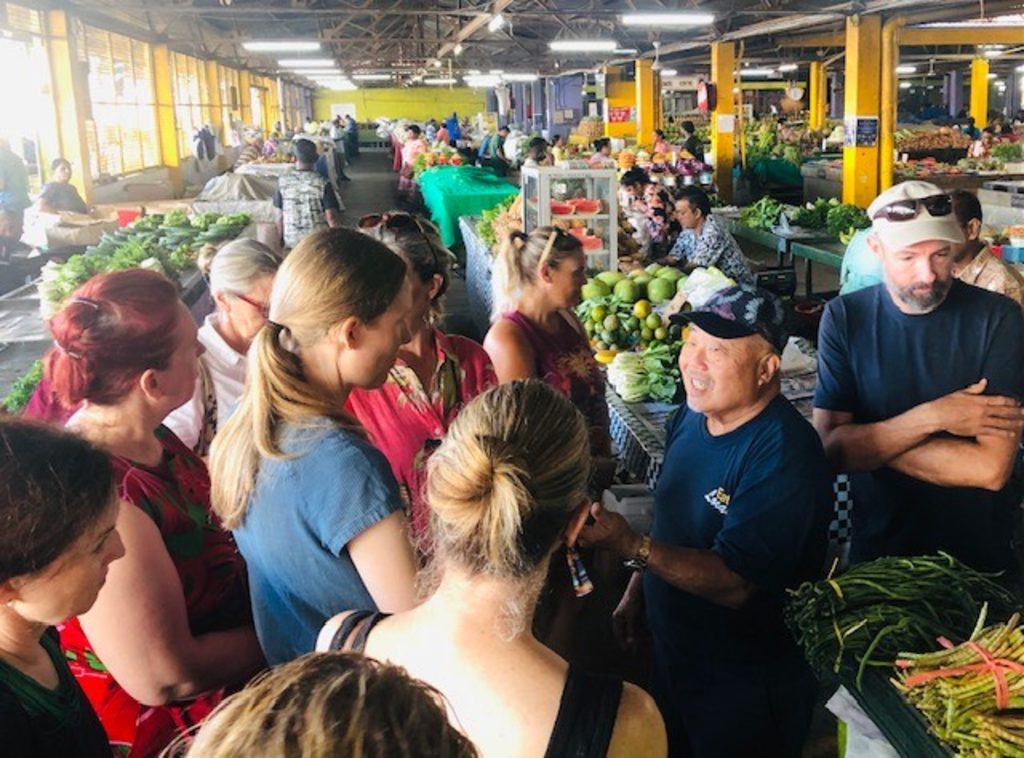
Colin Chung explains about local produce at the Suva Municipal Market. Picture: GREG CORNWALL
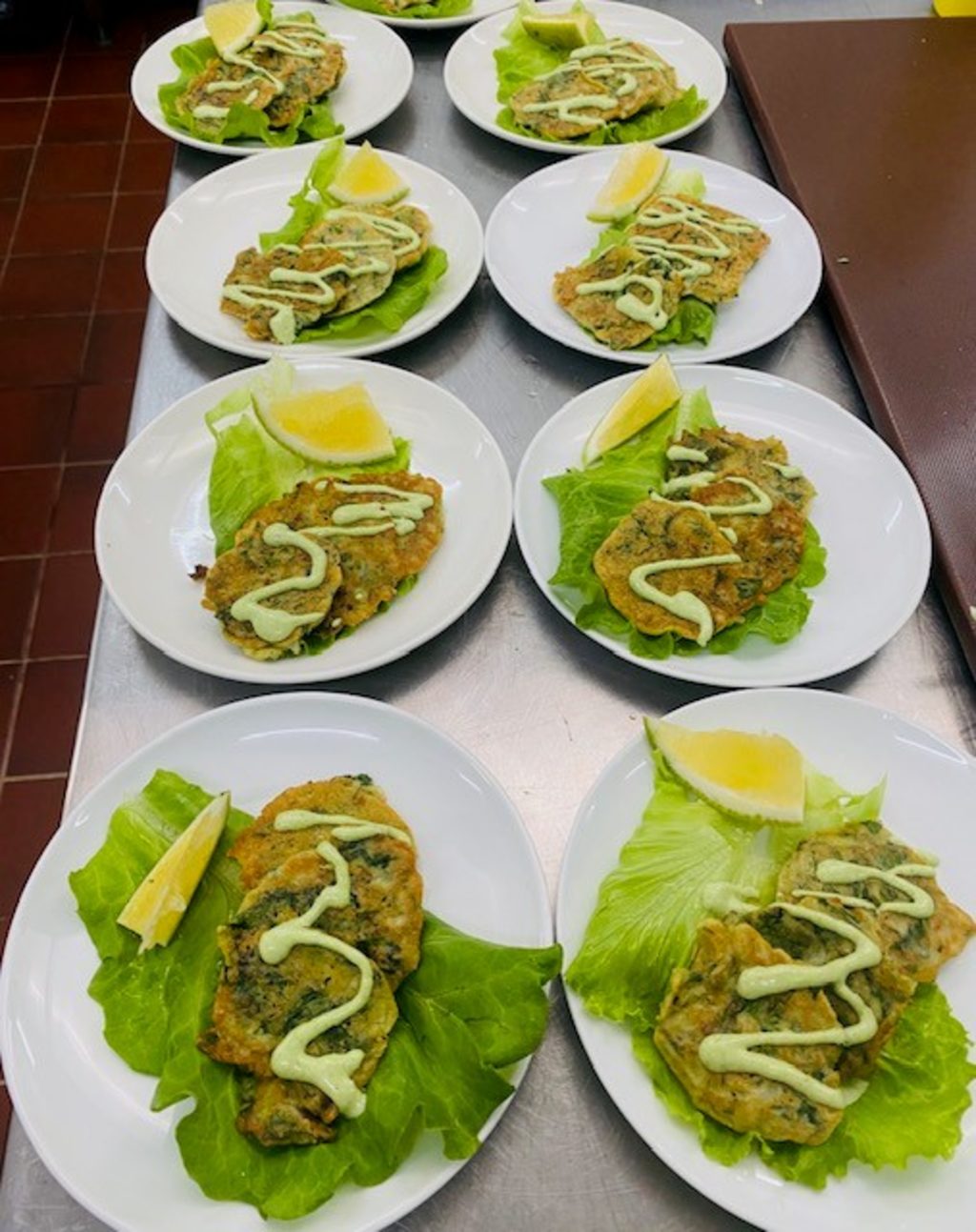
Mini moca and kaikoso fritters with lime and coriander aioli.
Picture: GREG CORNWALL
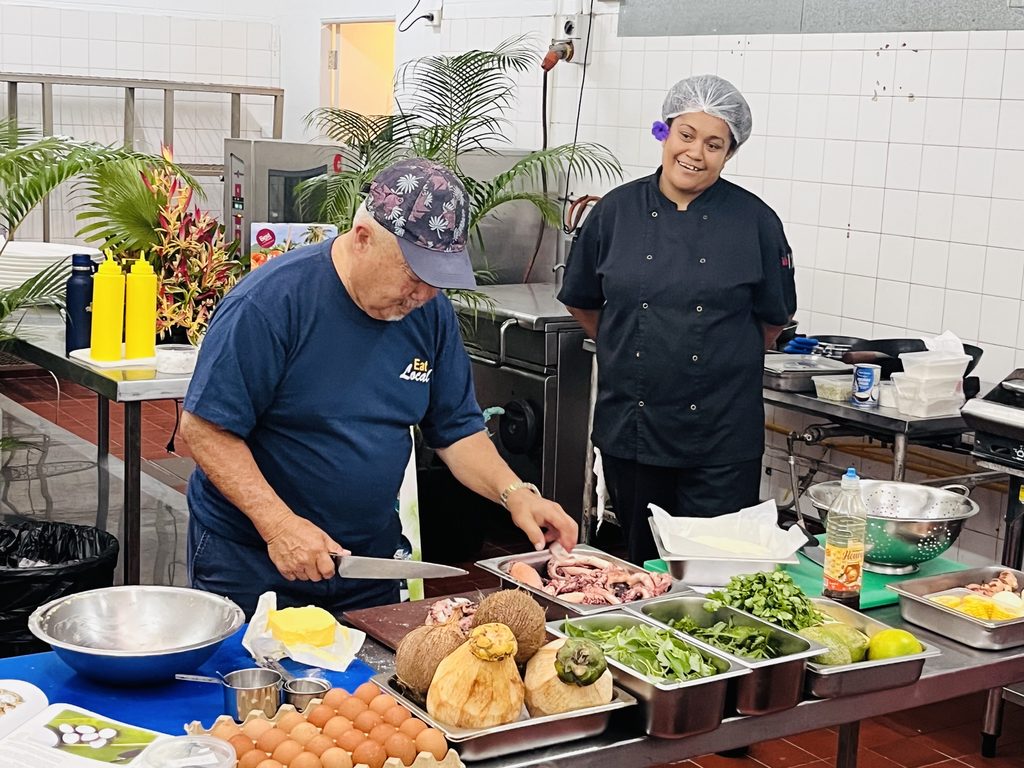
Colin preps an octopus for the octopus and bu (young coconut) noodle salad. Picture: ANA MADIGIBULI

